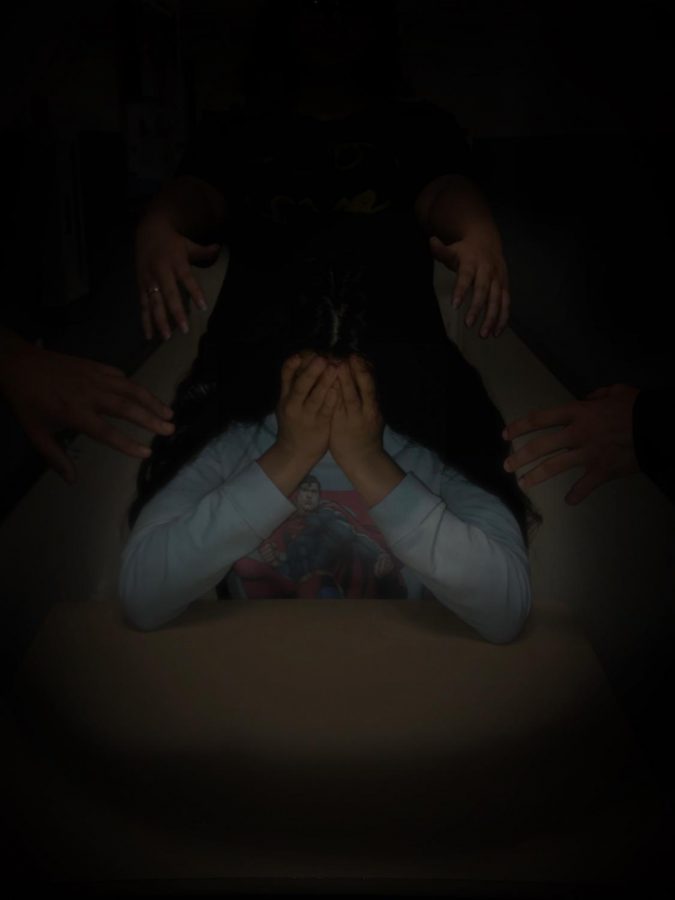Teens and Substance Abuse: Where’s the Connection?
Students are seen becoming victims of substance abuse.
October 17, 2018
The bell rings and students disperse in the hallway. Laughter and chatter are heard as students switch between classes. The atmosphere is lively and you would never even think about the substance abuse that consumes some of these teens lives.
Teenagers are addicted to music, movies, and other areas of pop culture. Unfortunately, a majority of this media can be considered toxic. With curse words to mentions of sex, alcohol, and drugs, these subjects influence teens to abuse substances.
One sophomore who will be referred to as source one comments on this, saying “I listen to Lana Del Ray a lot and her songs do allude to a lot of heroin and cocaine use. In a way, her songs are very relaxing so it can be interpreted as glorifying drug use.”
Source one isn’t the only student who thinks this way. According to the National Institute on Drug Abuse, 9.4% of all tenth graders participate in substance abuse, followed by 13.1% of all twelfth graders.
A junior who will be referred to as source two states, “I really wouldn’t support it for anyone. I think it all depends on how the person has matured and how they see the world and how drugs evolved.”
That same student has had previous experience with substance abuse explaining that they had gone to an event for a few days sometime last year. While at this event they were assaulted, which turned them to drugs and alcohol that night. The substance abuse continued into the following days.
“The first time I have ever used drugs was out of spite from a somewhat stressful and traumatic event where I was assaulted in my hotel room,” the junior states.
Source two goes on to say that they were with a group of friends and used drugs as a comfort. “I ended up caving in with a group of friends. I used what happened as an excuse to try it and did more things the following night.”
Unfortunately, this isn’t a rare case. People with PTSD and suffering from traumatic experiences are more likely to turn to drugs than those without these issues. According to the Ashwood Recovery Center drugs will precede trauma 66% of the time.
Drugs are used as a way to numb the pain from the previous experience. Teenagers are no exception, according to the Rape, Abuse, and Incest National Network (RAINN), females between the ages sixteen and nineteen are four times more likely to be sexually assaulted and those who are assaulted are up to ten times more likely to abuse drugs.
Peer pressure is a huge part of substance abuse. Teenagers have an intense feeling to fit in and feel valid with their peers. If a teenager who would never abuse substances finds themselves in a group of friends pressuring them, making them feel like that abusing substances is the only way to fit in, they might just do it.
A junior who will be referred to as source three went through just that at a Halloween party in her eighth-grade year. At the party were substances such as liquor and drug-laced brownies. They felt insecure at the time and found herself in the wrong crowd, a group of friends who pressured her to try the brownies.
“Everybody kept telling me that it was okay, that they wouldn’t really do anything. It made me feel like I had to do it so everyone else would think I was okay or cool because it’s a party,” they explain.
This is only one unfortunate example of a teenager trying drugs to fit in. Peers who do drugs may have nonchalant attitudes about substance abuse, making them seemingly harmless. Even those who are drug users may pressure their peers into using them, such as helping them finding the drugs or introducing them to media that support substance abuse.
Unfortunately, teenagers who do abuse drugs may not know when how much is too much, and it might just cost them their lives. According to the National Institute on Drug Abuse, almost five thousand youth lives are lost to overdoses. There are ways to combat this though including clinics, therapy, peer counseling groups, and risk management treatment.
Ms. Summer Webber has experience in this. Along with being the psychology and tenth grade history teacher she is also a substance abuse evaluator.
“My job as a therapist isn’t to fix anything but to help them get to a place where they are happy and functioning in a manner that suits the legal requirement of living in the state of Florida and their own desire.” Ms. Webber states.
She believes that there should be a more comprehensive form of education to help students learn about abuse, addiction, and risk factors. Those who are addicted to substances commonly do not feel any amount of self-preservation nor do they take accountability for their actions.
Ms. Webber understands this, stating, “Not everyone feels that it is a problem because there is that lack of accountability.”




